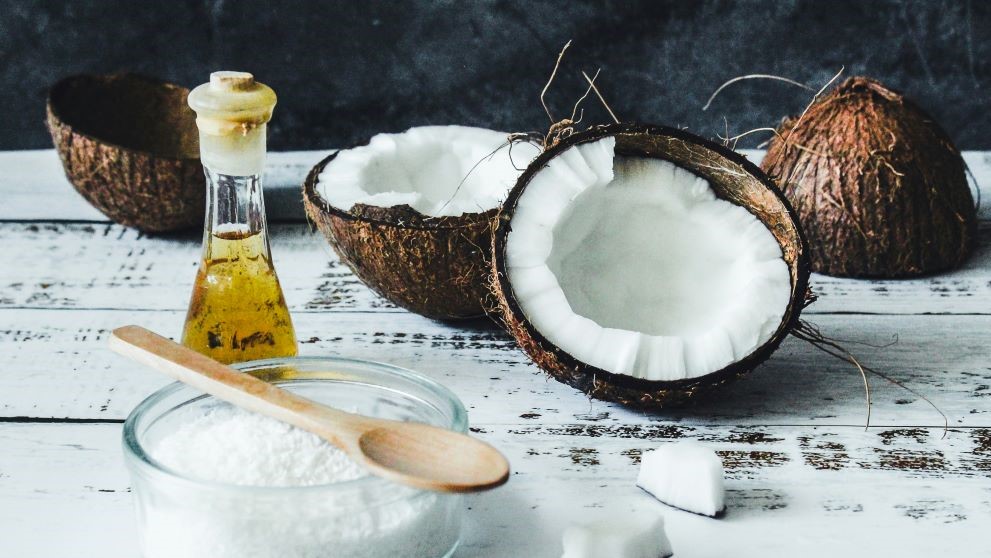Sri Lanka is renowned for its high-quality coconut products, with the industry being a significant part of the country’s agricultural sector. According to the Sri Lanka Export Development Board, the country is the fourth-largest exporter of coconut products in the world, with coconut accounting for around 12% of the country’s agricultural output.
This makes the island's businesses ideally positioned to tap into growing global demand for coconut oil, especially as the worldwide coconut oil market is projected to reach US$7.4 billion by 2027 with a CAGR of 5.5%. This demand is driven by coconut oil’s versatility and health benefits, leading to widespread usage in cooking, cosmetics, and even medicinal products.
Sri Lankan coconut oil brands are particularly favoured for their methods of production, which often include cold-pressed techniques preserving the oil's natural properties. The country is particularly recognised for producing some of the best coconut oil globally, especially Sri Lanka virgin coconut oil highly prized for its purity and aroma, and king coconut oil which is a variety native to Sri Lanka that has applications in Ayurvedic medicine.
However, whether it's cold-pressed coconut oil or refined, the process of exporting coconut oil requires meticulous planning and understanding of both production and logistics to run smoothly.
Here's how coconut oil suppliers and businesses can effectively manage the export of coconut oil from Sri Lanka, leveraging DHL Express's expertise for successful international deliveries.
Understanding how coconut oil is manufactured
The quality of coconut oil largely depends on its method of extraction. Coconut oil mills and manufacturers in Sri Lanka utilise both the wet and dry methods:
- Wet method: This method involves extracting oil from fresh coconut milk. It is labour-intensive and yields less oil than the dry method but produces a higher quality product, which is often labelled and marketed as virgin coconut oil.
- Dry method: More common and economically feasible, this method extracts oil from dried coconut meat or copra. The oil produced is more suitable for large-scale industrial uses due to its higher yield but may lack some of the finer qualities found in virgin coconut oil.
Understanding the shipping documentation required to export coconut oil globally
Exporting coconut oil requires a thorough understanding of the necessary documentation to ensure compliance with both Sri Lankan and international export regulations. Essential export shipping documents include:
- Packing list: Details the exact contents and specifications of the shipment.
- Invoice: Lists the quantity and total price of the coconut oil, serving as a transaction record.
- Bill of lading: Issued by the carrier, acknowledging the receipt of cargo and detailing the terms of delivery.
- Export licence: Necessary for legal export activities, issued by the government.
- Customs export declaration: A declaration made to the customs office detailing the nature, quantity, and destination of the goods being exported.
- Certificate of origin: A document proving the Sri Lankan origin of the coconut oil, often required by importing countries to determine duty rates. Recipient businesses and importers may also require the certificate of origin to fulfil their marketing requirements.
Packing and shipping considerations when exporting coconut oil globally
When shipping and packing coconut oil, it is vital to use safe food-grade packaging containers that prevent contamination and rancidity. Stainless steel containers are ideal for maintaining the oil's purity, while high-density polyethylene (HDPE) drums are also commonly used for their durability and cost-effectiveness.
While the coconut oil is in transit, storing it in proper temperature-controlled conditions is key to maintaining its quality. The oil should likewise be stored in a cool, dry place away from direct sunlight to maintain its quality during transportation.
This is especially paramount for transport to distant locations, where the smallest changes in temperature could affect the condition and quality of the entire shipment, potentially leading to large losses. In such a situation, choosing a reliable logistics partner like DHL Express becomes key to ensuring that the coconut oil reaches its destination in the best possible condition.














